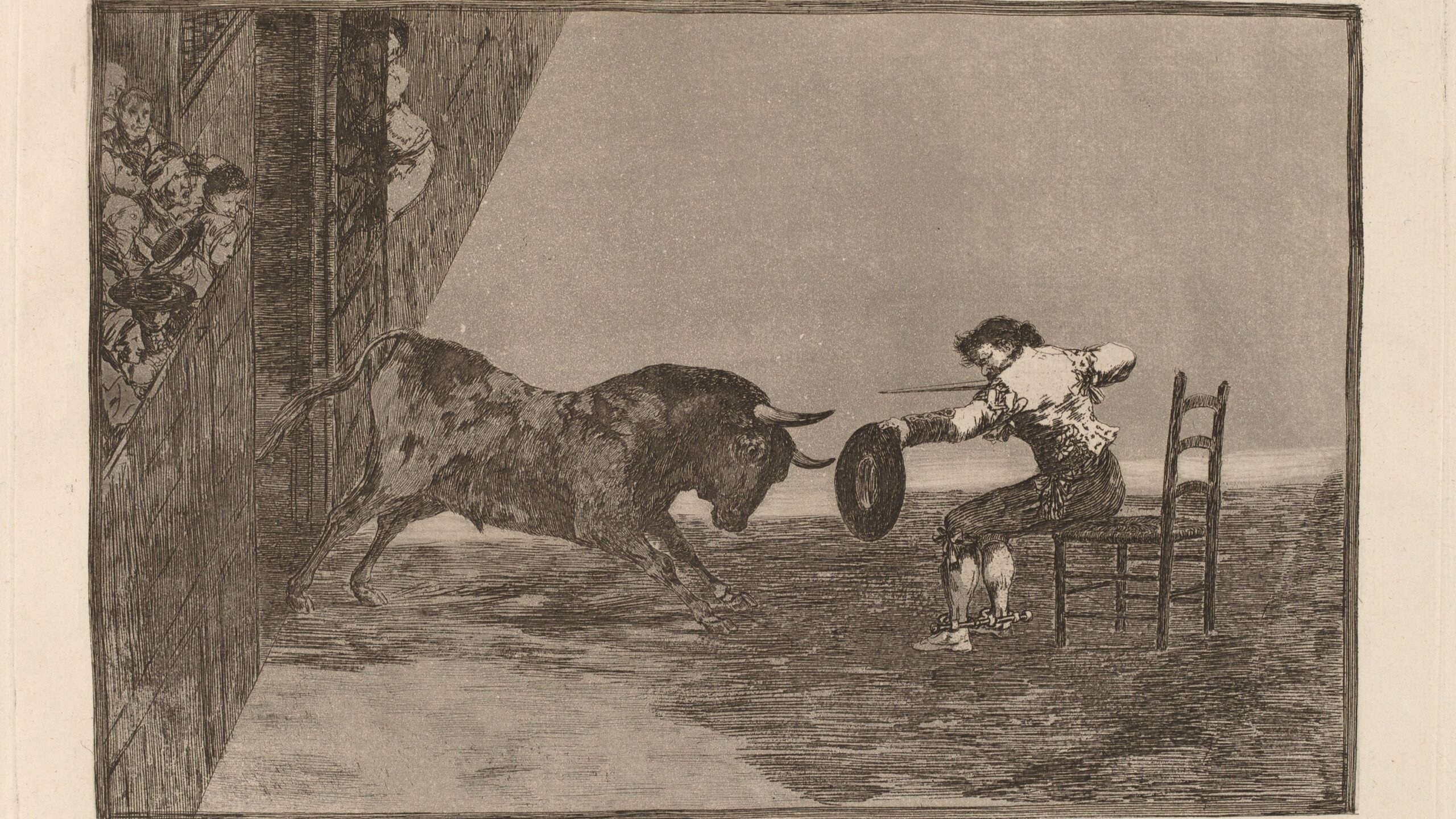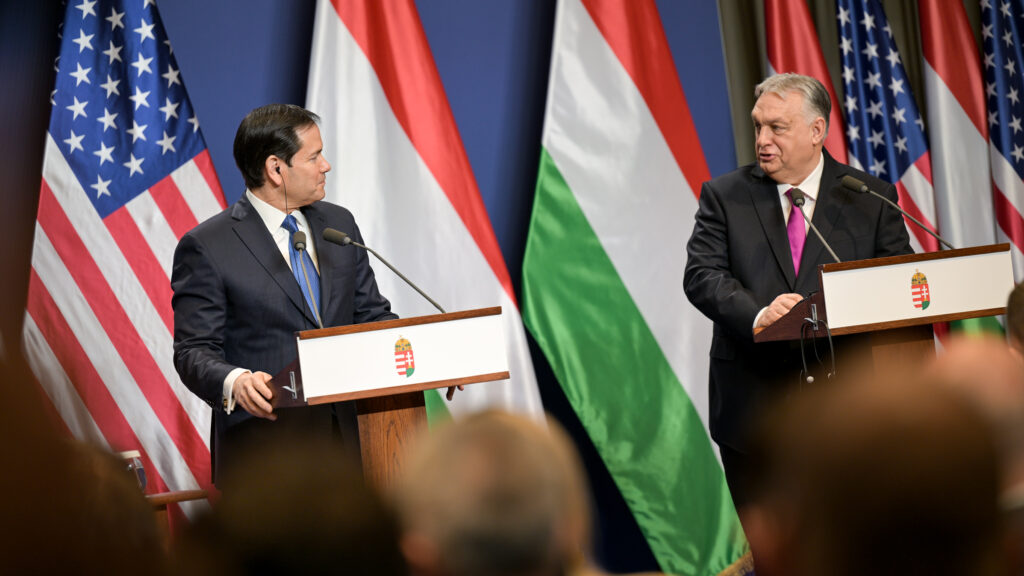The civil war among conservatives in the US rages on.
This struggle, unlike anything seen on the Left, is a waste of energy and focus. But it also reveals a symptom of a larger problem: a post-‘populism-in-power’-disillusionment.
Unlike the Left, right-wingers have not been fed the ‘friend/enemy’ distinction since birth.
For this reason, we must actively learn it. Otherwise, we risk eternally squabbling among ourselves, becoming distracted from the real threat. Therefore, we need to revisit the thoughts of a critical American thinker from the last century.
First off, let us remember that politics isn’t easy. One cannot expect a movement to win all the time. Secondly, populists, by nature inclined to stimulate the will of the people, risk being distracted.
So what happens when you are not winning and being distracted at the same time?
In recent years, more and more populists have attained power. For genuine reasons, they have been eager to treat problems that the people are furious about.
Although many times their rebellions at the ballot box have not translated into tangible policy shifts. It is not only Trump doing the TACO, we have seen that with the Tories post-Brexit and Wilders in the Netherlands.
Just like a Spanish bull, we have gathered energy (through people’s ever-growing frustrations) to furiously charge at what we believe is the true enemy. But the matador just keeps dancing to the side.
Not rarely are we failing in keeping our heads cool and our eyes focused on the matador, not just the red rag.
Already in ancient China, Sun Tzu correctly observed: ‘If you know the enemy and know yourself, you need not fear the result of a hundred battles. If you know yourself but not the enemy, for every victory gained, you will also suffer a defeat. If you know neither the enemy nor yourself, you will succumb in every battle.’
The phrase is self-explanatory, but the relevant point is that one cannot win without knowing who the enemy is. To us, the Moleta of symptoms is not the enemy, only second to the matador.
The American writer Samuel Todd Francis discussed this 20 years earlier, before the Tea Party movement and MAGA. In his book Beautiful Losers (1993), he explained how this was also the issue of the Old Right (although they were also ideologically mistaken). For this reason, it is worth going back to the man who wrote what Rush Limbaugh called ‘the populist manifesto’ that the modern populist had never heard of.
As a disciple of James Burnham, who wrote The Managerial Revolution in 1941, Francis continued his analysis of the ‘managers’ that Burnham had explained to be the winners of globalism and federalism, living in metropolitan areas working as administrators in global companies, government agencies working on committees that are taking control of the mass production industries. From then on, politics will once again be between the few and the many.
The managers against the rest, the metropolitan areas against the rest of each country. This is what we see in almost every Western country.
‘The managers against the rest, the metropolitan areas against the rest of each country’
The many, Francis calls MARs, an acronym for Middle American Radicals. Francis identified that these people are, politically speaking, different from the rest of the country. They are ‘radicals’: neither left nor right, but at most a synthesis of both. They are the ones left out of prosperity when politics favoured Wall Street over Main Street. They do not see the government as only favouring the rich (like the Left) or giving too much to the poor (like the Right).
Instead, they see the government as favouring both the rich and the poor at the expense of the middle and working classes. They are against what I’ve earlier coined asymmetrical minority distribution. Meaning the few (managers) redistribute money and power to other minorities (including themselves), such as various interest groups.
To MARs, it’s crystal clear against whom the struggle is: The liberal managers in power. According to Francis, this group has an entirely different ideology and ethics from MARs and, therefore, from populists as well. This comes from the fact that ideology is fundamentally shaped by the interests of social classes.
This is why, for example, the EU always finds that the ‘best solution’ to a crisis is more power for the EU—at the expense of its member states. It is also why bureaucrats want to implement more regulations, which means more paperwork and, in turn, more bureaucrats.
According to Francis, their influence can be seen across society. Politically, it supports federal economic planning and social engineering, ostensibly to realize its liberal ideology. Yet it has abandoned the ideal of a neutral government, instead using its own ideology to justify redistribution and the reengineering of society.
This self-playing piano is not only a material thing, but also a cultural phenomenon. Francis calls their ethics ‘Cosmpolitan ethics’, in contrast to the ‘domestic ethics’ of ordinary people, rooted in family, community, and national identity. Instead, their worldview is based on a patchwork of what we today would call wokeism and celebrates the anonymous life of the uprooted city dweller.
They see the old identities of ‘little platoons’ as limiting and something one needs to liberate themselves from for the freer ‘decode’ lifestyle in cities.
If Francis is correct, which he is, they do manifest the enemy of ours, and the politics is just a consequence of their influence. Therefore, we are mistaken to continue fighting a Whack-A-Mole game against the symptoms.
As the saying goes, ‘personnel is policy,’ and right now it is liberal managers who are running the show even with the New Right in power. Their influence must diminish as ours grows.
The people have voted, and the populist got the mandate.
Of course, when a boat is sinking, some hand out lifejackets, but others must plug the holes that let water in. Therefore, we need to fix the symptoms, but it cannot stop there. Yet many populists get it wrong once in power, and here lies our existential challenge as a movement.
As Lex Yarvin says: The most important thing in politics is to acquire more power and secure it. Meaning fighting the matadors, not only the red muletas. Otherwise, as Sun Tzu posited, for every win, even more defeats will come. The first signals of how that will look are what we witness in the American Right today.
Related articles:







